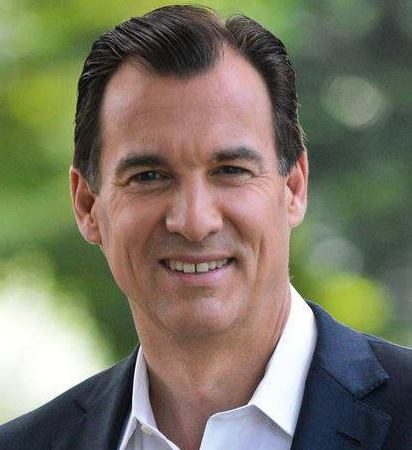Americans are divided.
Hate speech and hate crimes are spiking.
Fake news is increasing.
Terrorism threatens the world and 60 million refugees are displaced across the globe.
Elected officials don’t seem to get much done regarding the shrinking middle class, immigration reform, climate change, gun violence, and a whole bunch more.
What should we do?
“Love thy neighbor.”
That may seem like an odd and simplistic public policy prescription coming from a newly elected member of Congress — it may seem even more odd coming from a Democrat.
But, “love thy neighbor” is a concept that can been found across many traditions.
If we are going to get Republicans and Democrats to actually come together as people of goodwill in search of the common good, it’s going to require us to rely on some shared principles.
Faith and religious beliefs are the most effective, existing sources of commonality that need to be emphasized and relied upon.
If people of different political philosophies actually believed their opponents were similarly motivated by a common set of values to “love thy neighbor,” I believe we would get a lot more talking and problem-solving and less yelling and screaming.
According to pew research, 77 percent of Americans believe that religion is either very important or somewhat important in their lives.
Some 69 percent of Americans attend religious services either once per week or several times per year.
Even non-religious Americans have a fundamental belief in the religion-based concept of “love thy neighbor.”
Not only could politicians working across party lines and discussing issues rooted in shared faith and values result in more good work being accomplished, it could be good politics as well.
It’s always good politics for members of any party to actually get things done on behalf of the people they serve, but I believe it could be particularly good politics for Democrats to talk in terms of faith.
Democrats are losing at every level government from the White House, even though we won the popular vote, and Capitol Hill to statehouses and state legislatures.
I have listened very carefully to my fellow Democrats over the past month.
“Let’s work on the message.”
“Let’s target white blue collar men.”
“Let’s fire the pollsters.”
Changing the message or improving the tactics is what Democrats have worked on for a long time.
It hasn’t worked — Democrats have a cultural problem.
People that have a faith-based value system either don’t vote for us, or they do, but have reservations.
The Democratic Party has a religion problem and they better fix it.
According to Pew Research, 56 percent of the people who attend religious services, of any kind, at least once per week, vote Republican.
The good news is that I have found that most of my Democratic colleagues that I have met in my new job, seem genuinely inspired by their faith and have responded positively to the suggestion that we communicate more openly in terms of our different faith traditions.
There will be challenges.
Tough conversations regarding abortion, equal marriage, poverty, budget priorities, the environment, criminal justice, war and everything else will ensue.
Fitting each of these topics into our political debates while also addressing our values emanating from our faith traditions will require rigorous thought and civil discourse.
But guess what — it’s always been tough.
Maybe if we all agree on a starting point to “love thy neighbor” we might be a little more effective, but don’t take my word for it.
Just look to the American motto — “In God we Trust.”
From the Desk Of Tom Suozzi: Bridge to divisions: Love thy neighbor



